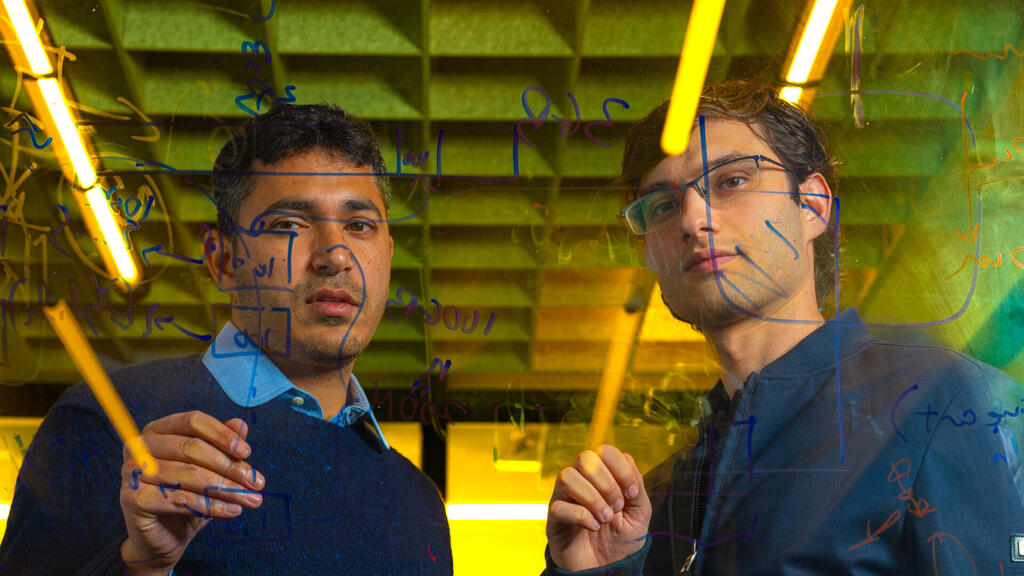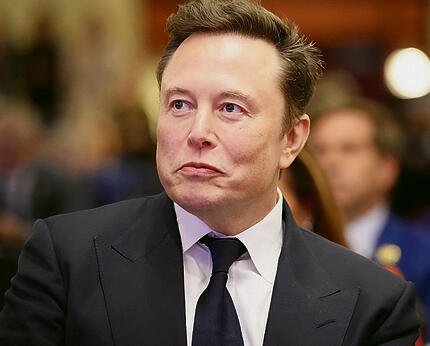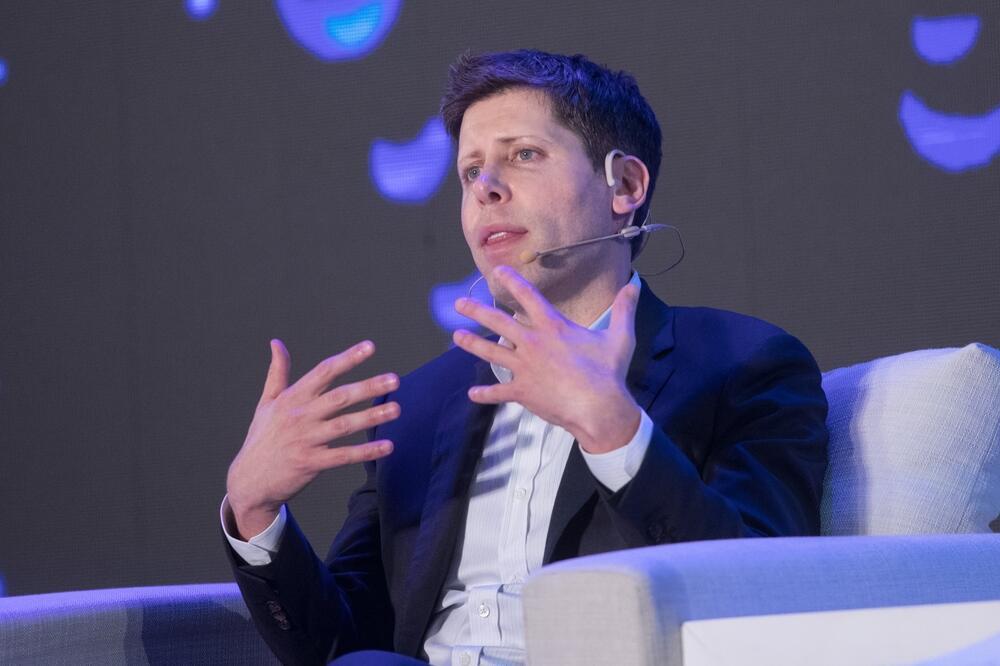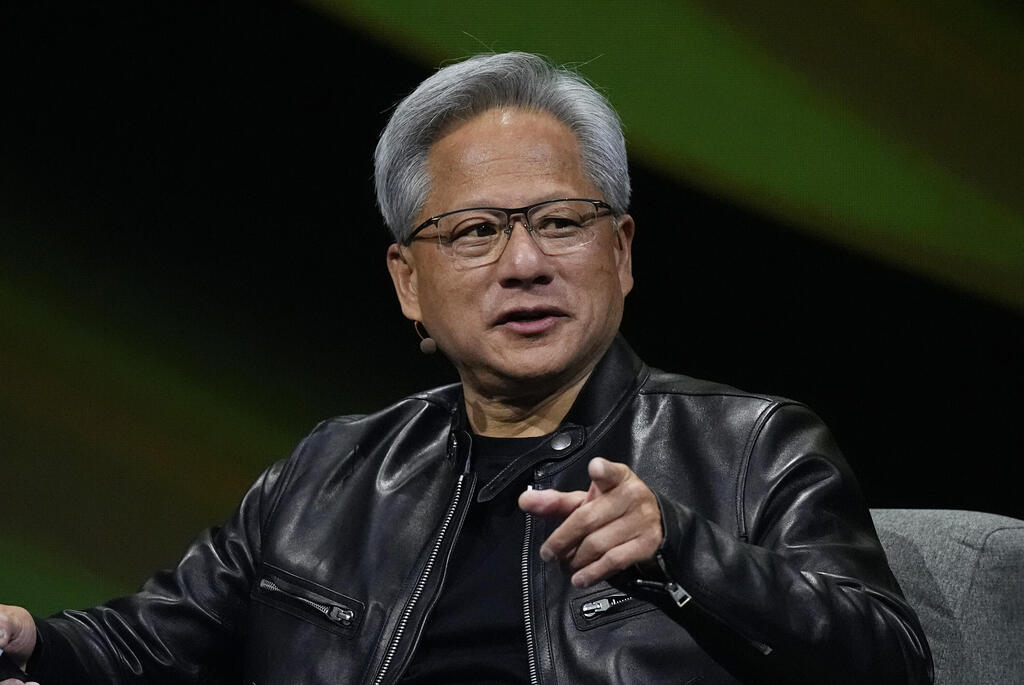Getting your Trinity Audio player ready...
Dean Leitersdorf flips through a large, colorful, and heavy book sitting on his desk—a volume published by Google to mark its 25th anniversary. He separates the first third of the book, dedicated to Google’s search technology, from the remaining two-thirds, which focus on the myriad of apps and tools the company has developed. "This is where we are now," he says, holding the first section of the book. He’s visibly confident that, like Google, Decart will one day claim the rest of the space. It’s hard to ignore the fact that Leitersdorf and Google were born in the same year.
Remember the name "Decart" and when you first heard of it—because chances are, you’ll be hearing about it a lot more. Decart is already a rising star in the international high-tech world. It’s riding the massive tsunami of artificial intelligence (AI) that towers above us. Unlike the many AI companies sprouting up like mushrooms chasing after money, Decart has a bold and ambitious goal: to reinvent AI from the ground up and become the technological backbone for anyone in the world who wishes to use it.
The central figure around whom the company revolves is Dr. Dean Leitersdorf (26). At just 23, he earned his doctorate from the Technion, making him one of the youngest recipients of the degree at this prestigious institution. Energetic and fast-talking, he is a whirlwind of ideas and declarations, brimming with extensive knowledge and unshakable self-confidence. Having grown up in Israel, Switzerland, and Silicon Valley, he completed high school in just two years and obtained three academic degrees in computer science in four years—some while still serving in the military. He has published international award-winning papers that could easily have formed the basis for one or two additional doctorates. There's no other way to put it: the guy is exceptionally talented.
Decart was founded last year by Leitersdorf, who serves as CEO, and Moshe Shalev (37) as CPO. The two met during their service in Israel's elite military intelligence unit 8200. It’s not just their age gap that makes their partnership remarkable. Shalev, hailing from an ultra-Orthodox family in Bnei Brak, decided to enlist in the army at 23, while married with a child. After moving between various units, he eventually ended up at Unit 8200. Though they come from vastly different worlds, their connection has proven incredibly strong.
Unlike many other startups, Decart generated millions of dollars in revenue just months after its inception. And they were just getting started. Shortly afterward, the company drew a host of investors, including Israeli-American Oren Zeev (Zeev Ventures) and international venture capital funds such as the American Sequoia Capital and Benchmark. Within two months, Decart closed two funding rounds, raising a total of $53 million and achieving a company valuation of $500 million—a half-billion-dollar figure almost overnight.
In recent months, Decart has become the talk of the tech world. Stories about the company have appeared in every notable media outlet. The powerhouse venture capital firm Sequoia Capital, its first and largest investor, produced a special interview with Leitersdorf. Elon Musk tweeted: "Wow, this is happening fast." Replit founder Amjad Masad wrote: "This is absolutely crazy." Meanwhile, on platforms like YouTube, Twitch, and TikTok, users went wild. Within just a week of its launch, the company reached 5 million users with its generative AI demo Oasis. Leitersdorf, however, insists this is only the beginning. His target: 1 billion users. Not one less.
Walking the path of Meta, Google and Apple
At this point, readers unfamiliar with the company might be asking themselves: What exactly does it do that has everyone so excited? Leitersdorf takes about 40 minutes to explain it in a dense and passionate monologue, leaving you unsure by the end whether you’ve fully grasped it. His explanation is filled with terms like "consumers," "inflection point," "infrastructure," and "GPU." At some point, you realize that even he may not entirely know the full extent of its potential. But what he’s doing right now is opening up all the possibilities—and there are many. Decart's innovations are already capable of accelerating and optimizing the performance of chips, such as those made by Nvidia, as well as AI-based engines and models.
Perplexed readers can first grasp onto the only thing Decart has released so far—an app called Oasis. It takes a few moments to appreciate the revolutionary breakthrough it represents. On the screen is the familiar blocky world of Minecraft, the best-selling computer game of all time. You can roam the space, climb hills, build houses, and smash rocks. But this isn’t the original game—it’s an entirely AI-generated experience, the first model of its kind in the world. The AI has been trained to independently create the entire gaming experience. As you wander through the green meadow, the AI reacts to every keystroke or mouse movement. The virtual world is built in real-time as you explore it, with no human programming or scripting involved.
This technology is called real-time AI-generated video. Imagine, for instance, that the AI instantly generates not just a meadow but the city of Paris—constructing its buildings, streets, people, and activities. OpenAI, the world’s leading AI company, recently unveiled an app called Sora that can create a few seconds of video at great expense and effort. Oasis, however, produces video in real-time at a fraction of the cost.
“Oasis was a cute demo, and we thought a few people might play with it,” says Leitersdorf. “We were blown away by how it exploded. It completely took over Twitter—Elon Musk tweeted about it, and many CEOs of AI and gaming companies tweeted about it too. Then it hit YouTube, Twitch, and TikTok. Within three days of the release,, we surpassed one million users—faster than ChatGPT did.”
“We were sure people would check it out for a minute,” adds Shalev. “Then we saw people playing with it for hours. It was insane.”
The global rush to use what seemed like an innocent app caught the company off guard. Such a massive user influx demands enormous communication and cloud-processing capabilities. Shalev, the company’s head of operations, took charge of the chaos. “Nothing was working. It felt like everything was crashing. But our team doesn’t believe in impossible. In 45 minutes, we managed to onboard thousands of users, scaling up more and more cloud processing capacity while developing on the fly. We left the office at 4:30 in the morning.”
All of this happened while Leitersdorf was in the U.S. “I was in the middle of nowhere in Idaho,” he recalls. “I went to rent a car, and the friendly guy at the counter asked for my email. Then he paused and said, ‘Why does decart.com sound familiar? Oh, Oasis! Wow, I’ve been playing that non-stop—I stayed up late last night.’ And wow, that was crazy. It was the first time I met a consumer on the street.”
Is that why you believe you’ll reach a billion users?
“We’re building an app for a billion users. That’s it—that’s the only goal. We could have built a great company to sell to Nvidia or some other giant, but we’re building a billion-consumer app.”
There aren’t many such companies, you know. Meta has 4 billion users, Google, Apple—that’s about it. Can a company from Israel handle a billion users?
“You always start with zero users, but it’s crucial to know where you’re headed, whether it takes two years or a decade. OpenAI had zero users for its first five years. Today, they’re at around 400 million users. Either this will be a massive commercial success, or in five years, it won’t work, and we’ll move on to the next craziest thing.”
Decart is positioning itself as an infrastructure company as well. To that end, it is establishing one of the most advanced AI labs in the world, recruiting the best minds Israeli tech has to offer.
Okay, so you had a successful demo, gained fame, and set a high bar of expectations. What’s next?
“To build an AI company, you need three things: data, infrastructure, and algorithms. Most companies, even those developing AI, don’t tackle all three. It's done by Google, Meta, OpenAI, Anthropic, and a few others. It’s incredibly complex to build all three capabilities within a single organization. We’ve started by establishing a lab that does all three, and you can only achieve that with exceptionally smart people.”
You’re competing with companies that have each raised tens of billions of dollars. How do you plan to do that?
Shalev: “Israel is an outstanding place to build systems. Much of the industry here is rooted in that strength. We have the talent and a strong connection to cutting-edge research, and that adds significant value when building an infrastructure company.”
Three degrees by the age of 23
Just recently, Decart moved into new offices in a glittering high-rise in Tel Aviv. The space features large, airy rooms with transparent glass walls, and there’s plenty of room awaiting the next wave of recruits. There are no snooker tables, beer taps, or the other indulgences that often characterize more established startups. At this stage, every resource is focused on one thing: development, development, and more development.
It’s fair to say that Dean Leitersdorf grew up immersed in the world of high-tech and business. The Leitersdorf family is part of Israel’s old-money aristocracy. His father, Prof. Eran Leitersdorf, a former dean of the Faculty of Medicine at the Hebrew University, might be disappointed that none of his children chose medicine as their career path: the eldest, Yoav, is the founder and director of the venture capital fund YL Ventures; the second, Yoni, is the founder and CEO of Indeni.
The youngest, Orian (21), is the youngest doctoral candidate in the Technion’s history and is poised to break his brother’s record. He may well become the next rising star of Israeli high-tech. Dean’s uncle, Giora Leitersdorf, serves on the Board of Trustees of the Ramat Gan Academic College and was a senior executive at Rafael and Telrad. His cousins include Amir Leitersdorf, a co-founder of Skyline and a serial entrepreneur, and Einat Leitersdorf, a senior executive at Buildots.
Other notable relatives include the architect Thomas (Tommy) Leitersdorf; Jonathan (Yoyo) Leitersdorf, one of Israel’s wealthiest individuals and owner of the venture capital fund L Capital; restaurateur and celebrity Andrea “Dushi” Leitersdorf; and Guy Leitersdorf, creator of the gay entertainment apps TLV Scene and Kiki Scene.
Can you describe your life milestones in the first 26 years?
“I was born in Israel, then we moved to Switzerland, and later to Palo Alto in Silicon Valley. When I got there, I realized I’d been lied to all my life when people told me I was smart. In Palo Alto, everyone’s smart. There was a 14-year-old finishing a bachelor’s degree at Stanford, and a 17-year-old already on his third startup. I grabbed my head and thought, ‘What have I done with my life for the past 15 years?’
“The first semester of 10th grade was a disaster—I went through all five stages of grief. Then I went to my teacher and said I needed to catch up. I skipped a grade and completed 11th and 12th grades in the same year. I returned to Israel at 17, completed my bachelor’s, master’s, and doctoral degrees in five and a half years—most of it while serving in the military. I’d work from 9 a.m. to 7 p.m. in Unit 8200, and then squeeze in a few hours of studying before bed.”
You probably completed all your degrees without attending many classes.
"I didn’t attend most of the lectures. During my busiest semester, I was taking 16 or 17 courses at the same time, while also working as a teaching assistant and publishing papers. There simply wasn’t time to go to class. In fact, it’s much easier to handle 15 courses than just nine, because when you can’t fit them into a traditional schedule, you’re forced to find alternative ways to learn—not necessarily the usual linear method."
A new kind of experience
Moshe Shalev grew up far from Palo Alto, in an ultra-Orthodox family in Bnei Brak, with seven siblings. At 17, he left the yeshiva in Bnei Brak, moved to Jerusalem, and worked a series of odd jobs. He remained religious but less strictly ultra-Orthodox. At 21, he got married and later decided to study accounting through a program designed for the ultra-Orthodox community.
Shalev: "I worked in a store while attending evening classes. Then there was a terror attack in Jerusalem, and it hit me hard. I thought, ‘Wait, I’ve never done military service.’ So, I enlisted and joined the ‘Intelligence in Green’ program in the Intelligence Corps."
You come from an ultra-Orthodox background and are a father. What do you have in common with a secular Jew who’s 11 years younger than you?
"I was in Unit 8200 in various roles and wanted to explore the world of research. That’s when I met some people, and one of them was Dean. I came to him with a professional question, and suddenly I realized I was getting so much more from this one person. He turned the question back to me, asking what could be done with the things he was researching. That conversation turned into a four-hour discussion in the hallway. After that, we went to the office, then set another meeting for the next day. Suddenly, I found someone who could tell me what was possible and what wasn’t. He knew all the technologies of 8200, and it was mind-blowing. So, we started working together."
And how was the company born?
Leitersdorf: "I won’t let Moshe flatter himself, we’ll spare him that. But let’s put it this way: I’ve been part of countless environments in my life—in Israel, in Silicon Valley—I’ve met a lot of people, but I’d found all of my next 700 startups with Moshe. I always knew I wanted to found a startup, and it wasn’t too hard for me to find partners, but when Moshe and I met, it was immediately clear. We complement each other perfectly."
Shalev: "Dean told me, ‘Listen, it’s time, I’m starting a company.’ I said, ‘Let’s go.’ So, we sat on the couch at my house. One of the things we gained from our time in the unit was the ability to dream big. The feeling that with the right people, anything is possible. It became clear to us that we wanted to create a deep-tech company (focused on R&D and innovative technologies – T.S.). We spent a lot of time talking about whether to start with a specific problem or with deep technology, and it was a lot of fun."
The company’s first breakthrough technology lies in computing capabilities, and it was developed remarkably quickly: a method to run AI ten times more efficiently in cloud computing data centers.
Leitersdorf explains that one of the main challenges in creating video with AI today is its cost—$100 per hour of video. With Decart's technology, it costs just 25 cents. "This allows us to release products that others simply can’t. It’s very similar to what Google did in the early days: they made search much faster and much cheaper than anyone else."
Following the release of the Oasis app two months ago, the company plans to roll out innovations at a rapid pace. "By the end of the year, we plan to launch three new models, and we’re building a suite of tools that will enable experiences that were impossible before our technology," says Leitersdorf.
Get the Ynetnews app on your smartphone: Google Play: https://bit.ly/4eJ37pE | Apple App Store: https://bit.ly/3ZL7iNv
The founders of Decart could have already cashed out, pocketed a few million dollars, and retired. But their motivation lies elsewhere—in tackling technological challenges and bringing new knowledge to the world. "Every so often, at very specific points in history, a product emerges that doesn’t solve a single problem but solves thousands of problems," says Leitersdorf without a hint of embarrassment. For him, he’s walking the same path as Steve Jobs, who introduced the iPhone, or Sam Altman, who launched ChatGPT. Like them, he aims to overcome "some kind of human barrier." With Apple, it was browsing the Internet from anywhere. With OpenAI, it’s the ability to converse with a computer. With Decart, it’s the ability to turn imagination into video. "When we brainstormed ideas for what to build, we couldn’t connect to just one problem," he explains. "Every problem we encountered, we thought, ‘Ugh, we'll solve only this?’"
Shalev adds: "We also looked at the field of health, which is enormous and incredibly important. We also wanted to do something meaningful. And then we found ourselves saying: We need to work on things that solve a lot of problems." Leitersdorf elaborates: "There are many hard problems that need solving, but most of them, by definition, aren’t exciting to tackle. Our goal is to solve hard problems that create insane value."
The commercial applications of Decart’s technology, if successful, are mind-boggling—ranging from personalized video ads tailored to each user’s hundreds of characteristics, to the gaming industry, television productions, and even Hollywood, which could generate billions by creating video content customized for every individual viewer. With such a massive wave of potential revenue, it will be challenging for the company to limit itself to individual users. But that’s a problem anyone would love to face.







